Ah, the wonderful world of backyard chicken keeping, where one of the biggest questions on everyone’s mind is: what can my chickens eat? Specifically, can chickens eat leeks? I know, it’s a pretty unique question, but one that has popped up more times than you might think.
The answer to the question is, yes, chickens can eat leeks. However, like with many other foods, there are considerations to take into account. While leeks are packed with nutrients, they should only be given in moderation due to the presence of thiosulphate, a substance that can be harmful to some animals in high amounts.
In this comprehensive guide, we’ll dive deeper into the chicken’s diet, the nutritional profile of leeks, and their potential benefits and risks for your feathered friends. Whether you’re a seasoned chicken keeper or a newbie to the flock, this article will provide practical tips and advice on feeding leeks to chickens.
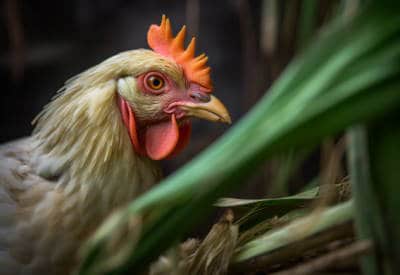
Understanding the Chicken Diet: Essentials and Limitations
Chickens are omnivorous creatures, meaning they consume a mix of plants, grains, and even small insects. Yet, it’s critical to understand what they should and shouldn’t eat.
Overview of What Chickens Can and Can’t Eat
Chickens enjoy a variety of food items from grains and vegetables to fruits and insects. However, they should never be fed harmful foods like chocolate, avocado pits and skin, or raw beans. These foods contain substances that are toxic to chickens.
Nutritional Requirements of Chickens
The foundation of a chicken’s diet is often a commercial feed which provides essential nutrients. A balanced chicken diet includes proteins, carbohydrates, fats, minerals, and vitamins. However, small quantities of additional foods like vegetables or grains can provide extra nutrition and variety.
Potential Risks and Toxic Foods for Chickens
It’s essential to know which foods can be toxic to chickens. For example, onions can cause anemia in chickens, and green potatoes and tomatoes contain solanine, a harmful substance for these birds.
[ChickenAffiliate]
Leeks: Nutritional Profile and Benefits
Leeks, a member of the Allium family, are flavorful plants that can add a subtle hint of onion to dishes. Let’s see why they might be a potential food source for chickens.
General Description and Nutritional Facts About Leeks
Leeks are packed with vitamins A, C, and K, along with significant amounts of dietary fiber and folic acid. These nutrients support various body functions, promoting overall health.
Health Benefits of Leeks
For humans, leeks have been linked with improved digestion, heart health, and vision, thanks to their abundant nutrients. They are also high in antioxidants, which can combat harmful free radicals in the body.
Possible Concerns When Consuming Leeks
However, like other members of the Allium family (onions, garlic), leeks contain a substance called thiosulphate, which can cause hemolytic anemia in certain animals if consumed in large amounts.
Can Chickens Eat Leeks?
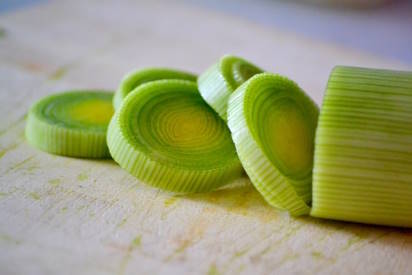
The big question remains: can our feathered friends partake in leeks? Let’s see what the experts and studies say.
Expert Opinions on Chickens and Leeks
Many chicken owners and experts agree that leeks can be included in a chicken’s diet, but with caution. They should be given as a treat and not a primary food source, primarily because of the thiosulphate content.
Scientific Studies on the Effect of Leeks on Chickens
Research on this topic is limited, but it’s generally accepted that chickens can tolerate Allium vegetables better than some other animals. They may process thiosulphate differently, avoiding the negative effects seen in pets like dogs and cats.
Understanding the Safe Quantities of Leeks for Chickens
As with any treat, moderation is key. While chickens can safely eat leeks, they should only form a small part of the diet. If you decide to feed your chickens leeks, monitor them for any adverse reactions.
Potential Benefits of Feeding Leeks to Chickens
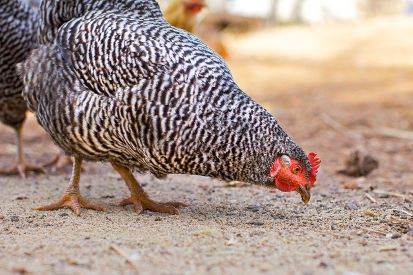
While feeding leeks to chickens comes with a caveat, there may be some benefits as well.
Nutritional Benefits: How Leeks Can Supplement a Chicken’s Diet
Leeks’ rich vitamin and mineral content can be beneficial for chickens, especially in winter months when greens are scarce. The vitamins can support immune health, while the fiber aids digestion.
Impact on Egg Production and Quality
Some chicken owners have reported no adverse effect on egg production or quality. However, this can vary between flocks, and more research is needed to draw firm conclusions.
Potential for Natural Pest and Parasite Control
The strong smell of Allium vegetables, including leeks, can potentially deter pests. Some chicken owners believe it may even help control internal parasites, although this theory needs further study.
Potential Risks of Feeding Leeks to Chickens
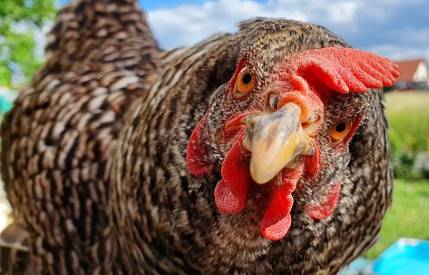
With potential benefits come potential risks. It’s important to keep these in mind when incorporating leeks into your chickens’ diet.
Potential Toxicity and Side Effects
As mentioned earlier, leeks contain thiosulphate, which can be toxic in large quantities. Overconsumption could lead to hemolytic anemia, although this is rare in chickens.
Influence on Flavor of Eggs
Some chicken owners notice a change in the flavor of their chickens’ eggs when they feed them strong-flavored foods like leeks. This isn’t necessarily harmful but may be off-putting.
Risk of Overconsumption and Nutritional Imbalance
Leeks should not replace a balanced chicken diet. Feeding too many leeks could lead to a nutritional imbalance, as they lack some essential nutrients found in chicken feed.
Practical Tips for Feeding Leeks to Chickens
If you decide to feed leeks to your chickens, here are some tips to do it safely and effectively.
Preparing and Serving Leeks for Chickens
You can serve leeks raw or cooked, but they should be chopped into small, manageable pieces. Avoid serving them with any seasonings or oils that might be harmful to chickens.
How to Introduce Leeks into Your Chickens’ Diet
Start by offering small amounts of leeks and observe your chickens. If they seem to enjoy them and show no ill effects, you can gradually increase the quantity.
Balancing Leeks with Other Foods in a Chicken’s Diet
Remember, leeks are a treat and should complement, not replace, your chickens’ regular diet. Aim to balance them with other treats and ensure your chickens are still consuming their primary feed. Variety is key to a healthy diet, even for chickens!
What Foods May Be Dangerous for Chickens to Eat?
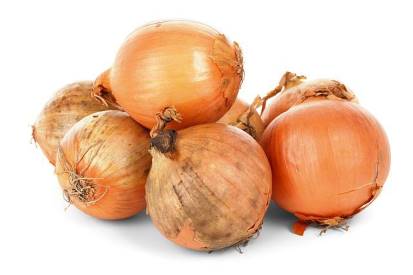
While we’re on the topic of what chickens can eat, let’s take a look at some foods that are potentially harmful or even deadly to them. Just as we humans have to be wary of certain items in our diet, our feathered friends have their no-go foods too. Here are five such items that you should be cautious about.
Avocado
Avocado, particularly the pit and skin, is extremely harmful to chickens. This is due to a toxin called persin, which can cause heart problems and even death in chickens. Although the flesh contains less persin, it’s still safer to avoid avocado altogether.
Read More: Can Chickens Eat Avocado? The Truth About This Superfood
Mushrooms
While many types of mushrooms are perfectly safe for human consumption, they can be potentially harmful to chickens. This is especially true for wild mushrooms, many of which are toxic. Even store-bought mushrooms could cause digestive upset in chickens.
Read More: Can Chickens Eat Mushrooms? Revealing The Fungi Mystery
Onions
Onions, like their relatives leeks, contain thiosulphate, which can lead to hemolytic anemia in chickens if consumed in large quantities. While a small amount might not cause immediate harm, it’s best to avoid onions in a chicken’s diet.
Read More: Can Chickens Eat Onions? Unpeeling The Surprising Truth
Garlic
Garlic is another Allium family member that contains thiosulphate. Some chicken keepers swear by feeding small amounts of garlic for its purported health benefits, including natural pest control. However, as with leeks and onions, large quantities could be harmful, and more research is needed to understand its effects fully.
Read More: Can Chickens Eat Garlic? Unpeeling The Truth
Chives
Chives, also a part of the Allium family, carry the same potential risks as onions and garlic. While some chickens might enjoy them and appear unaffected, it’s safest to steer clear of chives, especially in large quantities, to avoid the risk of hemolytic anemia.
Read More: Can Chickens Eat Chives? 5 Excellent Benefits
Frequently Asked Questions About Feeding Leeks to Chickens
In this section, we address some of the most commonly asked questions regarding chickens and their consumption of leeks.
How should I prepare leeks for my chickens?
Leeks can be served to chickens both raw and cooked. However, they should be chopped into small, manageable pieces to make it easier for the chickens to eat. Avoid seasoning or cooking the leeks with oils or spices that might be harmful to chickens.
Are there any signs of adverse reactions I should watch out for when I feed my chickens leeks?
If your chickens have eaten too many leeks, they might exhibit signs of discomfort, lethargy, or changes in their egg-laying patterns. If these symptoms persist, it would be best to consult with a vet.
Can baby chicks eat leeks?
Baby chicks should stick to chick starter feed, which is specially formulated to meet their nutritional needs. Once they grow into adults, you can gradually introduce them to a wider variety of foods, including leeks, in moderation.
Can leeks replace commercial feed in a chicken’s diet?
No, leeks should not replace commercial feed in a chicken’s diet. Commercial feed is specially formulated to provide a balanced diet for chickens, containing all the nutrients they need. Leeks can be an occasional treat, but they should not be the main component of their diet.
What are some alternatives to leeks in a chicken’s diet?
Chickens can eat a wide variety of fruits, vegetables, and grains. Safe options include leafy greens, cucumbers, zucchini, apples, and oats. These can provide a balanced variety of nutrients alongside their main feed.
Can chickens eat leeks – final thoughts
In the cluck of an eye, we’ve scratched the surface of a question that has surely been pecking at your brain: can chickens eat leeks? We’ve learned that while these Allium family members are packed with nutrition, their consumption requires a few precautions.
Just like how we don’t enjoy all foods in all quantities, chickens, too, have their dietary needs and limitations. Leeks can certainly be a part of their menu, but moderation, as with all good things, is key.
So, the next time you’re chopping up some leeks for your soup or salad, remember to save a little for your feathered friends. Keep it well-balanced, make sure it’s appropriately portioned, and continue to provide a varied diet for your flock.
Related Articles:
